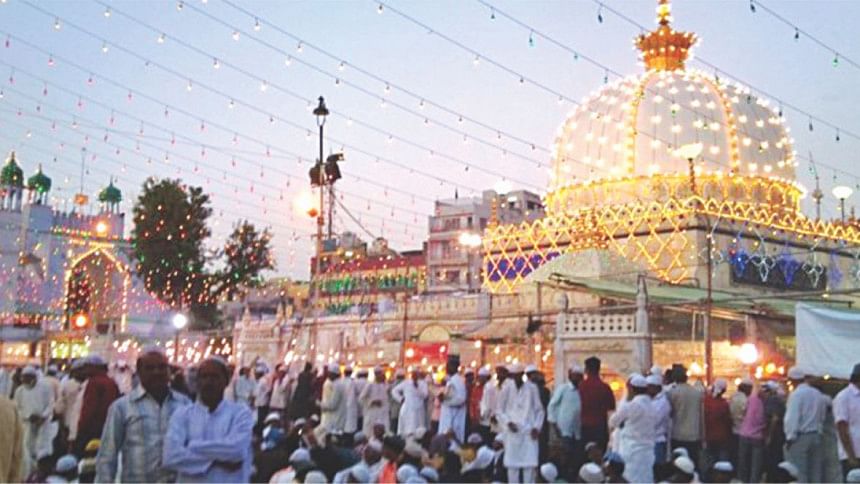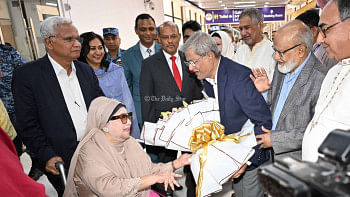The Lieutenant of Faith

The Sufi is born out of impatience. Indeed, impatience is the Sufi's greatest virtue and the inner fire that fuels his quest for God. A Sufi's impatience springs from his unbearable longing for the divine, the intensity of which burns up all and any desire but one: union with Allah. The Sufis mad inclination does not allow him rest from his perpetual state of hunger. He will not wait for the hereafter to unite with his keeper and creator; his need is much too urgent. Thus, he abandons anything that burdens his quest and weakens his will to strive on the path of truth, surrender and enlightenment.
The great Auliya (“Friend of Allah”) Khwaja Gharibe Nawaz Moinuddin Chishti was not only a Sufi seeker himself but a loving father to many desperate souls in need of guidance and refuge.
Gharibe Nawaz was born in 1142 A.D. in Sijistan, Iran. He is hailed as “The Founder of the Chisti Order of Sufism”, one of the four branches of the Sufi Faith. From an early age Gharibe Nawaz displayed a disinterest in worldly affairs remaining engrossed in prayer and meditation. His personal possessions comprised of a windmill and an orchard which he inherited from his father. However, when the Khwaja grew into a young man he sold off all his property and distributed the returns among the poor. He set out on a journey to find a teacher to learn the secrets of Islamic mysticism. He travelled to Samarkand and Bukhara to seek the company of Islamic scholars and finally met his spiritual master Usman Hoorani.

When his training, consisting of the most difficult exercises in self-restraint, silence and austerity was complete his teacher insisted they travel to Mecca to perform Hajj. One night while staying in Medina the Khwaja went into a deep trance. He woke up, in an ecstatic state with an overwhelming sense of destiny to proceed to India to spread the message of Islam. Thus, the Khwaja is given the title “Ayate Rasul”, meaning the “Lieutenant of the Prophet”.
Afterwards the Khwaja travelled to many centres of Islamic practice including Baghdad, Sabzwar and Balkh, gathering many followers on the way. Anyone who came into contact with him, irrespective of caste or creed would become mesmerised by his presence. The Khwaja glanced at everyone with a loving warmth that filled their hearts with devotion to God and goodness.
The Khwaja ultimately settled in Ajmer with his disciples and spent his life expounding the divine principles of love and humanity. He adopted Indian customs to make his teachings more accessible to the people. One example of this is worship through music, or Qawalli, drawn from the Hindu concept of Kirtana. Gharibe Nawaz emphasised upon “Service to Humankind” as the highest form of worship. Once asked by a devotee what it means to have devotion to Allah, he replied: “to redress the misery of those in distress, to fulfil the needs of the helpless and to feed the hungry.”
The Khwaja left the material plane on 16th March 1226. He was buried in his prayer room which became his shrine, the sacred “Khwaja Dargah Sharif” where thousands of people flock to every year to honour the great mystic.
Information Source: khwajagharibnawaz.com

 For all latest news, follow The Daily Star's Google News channel.
For all latest news, follow The Daily Star's Google News channel. 



Comments